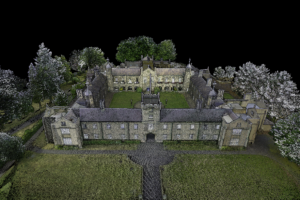The future of timber in Wales

It’s great that decarbonisation and green recovery are at the core of the Welsh Government’s Well-being of Future Generations Act (2015). But what does this mean in practice?
The construction industry is one of the biggest employers in Wales providing more than 100,000 jobs, but unfortunately, it is also one of our biggest polluters. That’s why at CWIC our mission is to upskill the sector to become a Net Zero industry has never been more important. Being key partners for the Welsh Government-funded Optimised Retrofit project, and other Net-Zero educational campaigns, we are committed to ensuring the future of green skills and education in Wales is bright.
Our ambition is to ensure sustainable materials are at the forefront of Welsh construction and we will support A Low Carbon Wales, by ensuring both residential and commercial buildings are far more energy and carbon-efficient. Whilst underpinning the skills and knowledge eco-system required to deliver these outputs.
Successful funding
In April, in partnership with WoodKnowledge Wales, the University of Wales Trinity Saint David was rewarded funding from the UK Community Renewal Fund, to deliver a feasibility study and business plan with the ambition to establish a Welsh Timber Development Centre, which includes plans for the first timber focussed facility in Wales. As our only widely available renewable construction material, timber plays an important role in developing new low-carbon approaches to construction.
Based in Lampeter, Mid Wales, our Timber Development Centre will provide an opportunity to co-design / develop products and service innovation; new start-ups, and enterprises, leading to new jobs and improved skills for the region and Wales. WKW is a team of specialists from a range of disciplines and sectors, such as architects, engineers, researchers, housing professionals, wood scientists, and sawmillers. Together we are committed to driving change through collaboration across academia, industry, and policy.
In its current plan, Ceredigion County Council has identified ‘boosting the economy’ as its top priority. The County Council’s new Economic Strategy outlines how it intends to achieve this and underlines the close relationship between economic prosperity and the county’s natural assets.
Our activity forms a key part of Canolfan Tir Glas, the University of Wales Trinity Saint David’s strategic vision to contribute towards the regeneration of Lampeter town, and this initiative is a key catalyst for a range of associated developments across the area.
What’s on offer
The central part of our funding was to develop courses and events specialising in Welsh timber, manufacturing, and low carbon construction/retrofit. These will be delivered over the coming months of June and July 2022 by industry experts and our leading academics.
The programme of events is for industry professionals, tradespeople, students, or even those looking for a career change and include how to manufacture advanced time frame panels for high-performance buildings to techniques for measuring building impact and executing building performance evaluations for retrofit to how to sustainably produce the timber we need for a zero-carbon Wales.
This will form part of proposals to further integrate our learning into new and existing courses offered at the University Wales Trinity Saint David. The workshop sessions planned for the Welsh Timber Development Centre will also support new qualifications for both further and higher education in partnership with Coleg Sir Gar and Coleg Ceredigion.




